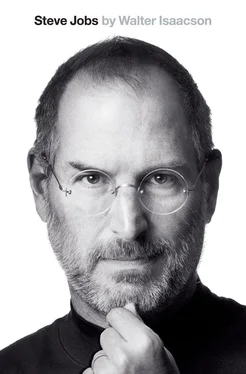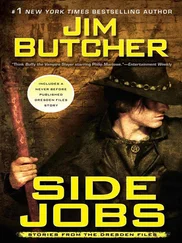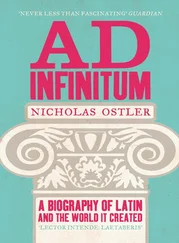Vegetarianism and Zen Buddhism, meditation and spirituality, acid and rock—Jobs rolled together, in an amped-up way, the multiple impulses that were hallmarks of the enlightenment-seeking campus subculture of the era. And even though he barely indulged it at Reed, there was still an undercurrent of electronic geekiness in his soul that would someday combine surprisingly well with the rest of the mix.
Robert Friedland
In order to raise some cash one day, Jobs decided to sell his IBM Selectric typewriter. He walked into the room of the student who had offered to buy it only to discover that he was having sex with his girlfriend. Jobs started to leave, but the student invited him to take a seat and wait while they finished. “I thought, ‘This is kind of far out,’” Jobs later recalled. And thus began his relationship with Robert Friedland, one of the few people in Jobs’s life who were able to mesmerize him. He adopted some of Friedland’s charismatic traits and for a few years treated him almost like a guru—until he began to see him as a charlatan.
Friedland was four years older than Jobs, but still an undergraduate. The son of an Auschwitz survivor who became a prosperous Chicago architect, he had originally gone to Bowdoin, a liberal arts college in Maine. But while a sophomore, he was arrested for possession of 24,000 tablets of LSD worth $125,000. The local newspaper pictured him with shoulder-length wavy blond hair smiling at the photographers as he was led away. He was sentenced to two years at a federal prison in Virginia, from which he was paroled in 1972. That fall he headed off to Reed, where he immediately ran for student body president, saying that he needed to clear his name from the “miscarriage of justice” he had suffered. He won.
Friedland had heard Baba Ram Dass, the author of Be Here Now , give a speech in Boston, and like Jobs and Kottke had gotten deeply into Eastern spirituality. During the summer of 1973, he traveled to India to meet Ram Dass’s Hindu guru, Neem Karoli Baba, famously known to his many followers as Maharaj-ji. When he returned that fall, Friedland had taken a spiritual name and walked around in sandals and flowing Indian robes. He had a room off campus, above a garage, and Jobs would go there many afternoons to seek him out. He was entranced by the apparent intensity of Friedland’s conviction that a state of enlightenment truly existed and could be attained. “He turned me on to a different level of consciousness,” Jobs said.
Friedland found Jobs fascinating as well. “He was always walking around barefoot,” he later told a reporter. “The thing that struck me was his intensity. Whatever he was interested in he would generally carry to an irrational extreme.” Jobs had honed his trick of using stares and silences to master other people. “One of his numbers was to stare at the person he was talking to. He would stare into their fucking eyeballs, ask some question, and would want a response without the other person averting their eyes.”
According to Kottke, some of Jobs’s personality traits—including a few that lasted throughout his career—were borrowed from Friedland. “Friedland taught Steve the reality distortion field,” said Kottke. “He was charismatic and a bit of a con man and could bend situations to his very strong will. He was mercurial, sure of himself, a little dictatorial. Steve admired that, and he became more like that after spending time with Robert.”
Jobs also absorbed how Friedland made himself the center of attention. “Robert was very much an outgoing, charismatic guy, a real salesman,” Kottke recalled. “When I first met Steve he was shy and self-effacing, a very private guy. I think Robert taught him a lot about selling, about coming out of his shell, of opening up and taking charge of a situation.” Friedland projected a high-wattage aura. “He would walk into a room and you would instantly notice him. Steve was the absolute opposite when he came to Reed. After he spent time with Robert, some of it started to rub off.”
On Sunday evenings Jobs and Friedland would go to the Hare Krishna temple on the western edge of Portland, often with Kottke and Holmes in tow. They would dance and sing songs at the top of their lungs. “We would work ourselves into an ecstatic frenzy,” Holmes recalled. “Robert would go insane and dance like crazy. Steve was more subdued, as if he was embarrassed to let loose.” Then they would be treated to paper plates piled high with vegetarian food.
Friedland had stewardship of a 220-acre apple farm, about forty miles southwest of Portland, that was owned by an eccentric millionaire uncle from Switzerland named Marcel Müller. After Friedland became involved with Eastern spirituality, he turned it into a commune called the All One Farm, and Jobs would spend weekends there with Kottke, Holmes, and like-minded seekers of enlightenment. The farm had a main house, a large barn, and a garden shed, where Kottke and Holmes slept. Jobs took on the task of pruning the Gravenstein apple trees. “Steve ran the apple orchard,” said Friedland. “We were in the organic cider business. Steve’s job was to lead a crew of freaks to prune the orchard and whip it back into shape.”
Monks and disciples from the Hare Krishna temple would come and prepare vegetarian feasts redolent of cumin, coriander, and turmeric. “Steve would be starving when he arrived, and he would stuff himself,” Holmes recalled. “Then he would go and purge. For years I thought he was bulimic. It was very upsetting, because we had gone to all that trouble of creating these feasts, and he couldn’t hold it down.”
Jobs was also beginning to have a little trouble stomaching Friedland’s cult leader style. “Perhaps he saw a little bit too much of Robert in himself,” said Kottke. Although the commune was supposed to be a refuge from materialism, Friedland began operating it more as a business; his followers were told to chop and sell firewood, make apple presses and wood stoves, and engage in other commercial endeavors for which they were not paid. One night Jobs slept under the table in the kitchen and was amused to notice that people kept coming in and stealing each other’s food from the refrigerator. Communal economics were not for him. “It started to get very materialistic,” Jobs recalled. “Everybody got the idea they were working very hard for Robert’s farm, and one by one they started to leave. I got pretty sick of it.”
Many years later, after Friedland had become a billionaire copper and gold mining executive—working out of Vancouver, Singapore, and Mongolia—I met him for drinks in New York. That evening I emailed Jobs and mentioned my encounter. He telephoned me from California within an hour and warned me against listening to Friedland. He said that when Friedland was in trouble because of environmental abuses committed by some of his mines, he had tried to contact Jobs to intervene with Bill Clinton, but Jobs had not responded. “Robert always portrayed himself as a spiritual person, but he crossed the line from being charismatic to being a con man,” Jobs said. “It was a strange thing to have one of the spiritual people in your young life turn out to be, symbolically and in reality, a gold miner.”
. . . Drop Out
Jobs quickly became bored with college. He liked being at Reed, just not taking the required classes. In fact he was surprised when he found out that, for all of its hippie aura, there were strict course requirements. When Wozniak came to visit, Jobs waved his schedule at him and complained, “They are making me take all these courses.” Woz replied, “Yes, that’s what they do in college.” Jobs refused to go to the classes he was assigned and instead went to the ones he wanted, such as a dance class where he could enjoy both the creativity and the chance to meet girls. “I would never have refused to take the courses you were supposed to, that’s a difference in our personality,” Wozniak marveled.
Читать дальше












